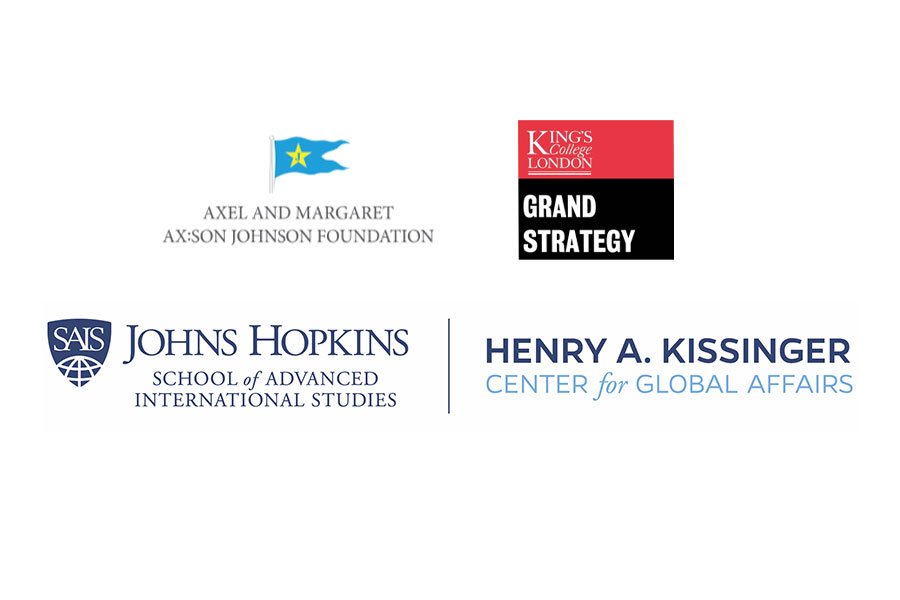The Future of World Order
 Axel and Margaret Ax:son Johnson Foundation | Henry A. Kissinger Center for Global Affairs, Johns Hopkins School of Advanced International Studies | Centre for Grand Strategy, War Studies Department, King’s College London
Axel and Margaret Ax:son Johnson Foundation | Henry A. Kissinger Center for Global Affairs, Johns Hopkins School of Advanced International Studies | Centre for Grand Strategy, War Studies Department, King’s College London
The Crisis of World Order
What is the future of world order? The international system built out of the Second World War is showing signs of strain, if not crisis. There is a pressing need to explore first order questions about the material, political, and intellectual foundations of the current world order and its likely future direction.
In his 2014 book World Order, Dr. Henry Kissinger argued that creating a new international order, adapted to the realities of the twenty-first century, was the greatest challenge facing statesmen today. This sense of urgency has been increased by two developments: a return of great-power competition that increases fears that the West has entered a period of decline; and profound and unsettling technological changes which have transformed the basis of social, economic, and political life. Under these pressures, has the idea of a “liberal international order” lost its value? As we enter the third decade of the twenty-first century, we need new thinking about the future of the international system--thinking that more accurately reflects the era in which we live.
The Conference Model: Bellagio II
On April 23 - 25, 2020, the Kissinger Center for Global Affairs at the Johns Hopkins School of Advanced International Studies and the Axel and Margaret Ax:son Johnson Foundation, Sweden, in association with the Centre for Grand Strategy at King’s College London, will host a meeting on the future of world order at the Salamander Resort in Middleburg, Virginia, near Washington, DC. The conference will bring together leading thinkers and policymakers to examine and better understand the profound challenges to the international system. The conference is an organic outgrowth of two ventures: the Kissinger Center’s distinguished America and the Future of World Order Project and Study Group; and the Centre for Grand Strategy’s World Order Study Group and Applied History and Grand Strategy Project, supported by the Axel and Margaret Ax:son Johnson Foundation.
Our meeting is inspired by a similar conference that took place on Lake Bellagio in June 1965 – “Conditions of World Order”--at the height of the Cold War. Convened by the French philosopher Raymond Aron, it included world renowned scholars and statesmen such as Henry Kissinger, Stanley Hoffmann and Lord Gladwyn Jebb, the first Acting Secretary General of the United Nations. The proceedings were published in a special issue of Daedalus, highlighted by Kissinger’s path-breaking article, “Domestic Structure and Foreign Policy.” We propose to produce a volume of the best contributions to the conference, and to launch a new program of work on the future of world order, to take place around the world. Most importantly, just as the 1965 conference inspired creative insights and ideas, we hope that the conversations at Salamander will inspire new thinking about how to meet the challenges presented by a rapidly changing world.
This gathering, which will be the first of several global discussions about the future of world order, will highlight the role of the Anglo-American alliance in creating the post 1945 liberal order, while wrestling with the uncertain but consequential contemporary electoral politics in both countries.
The conference will address the following themes:
· The Historical Foundations of World Order
· Competing Conceptions of International Order, Past and Present
· The US-China Competition and the Future of World Order
· Technological Challenges to World Order
· Socio-Economic Challenges to World Order
· Policymaking and International Order